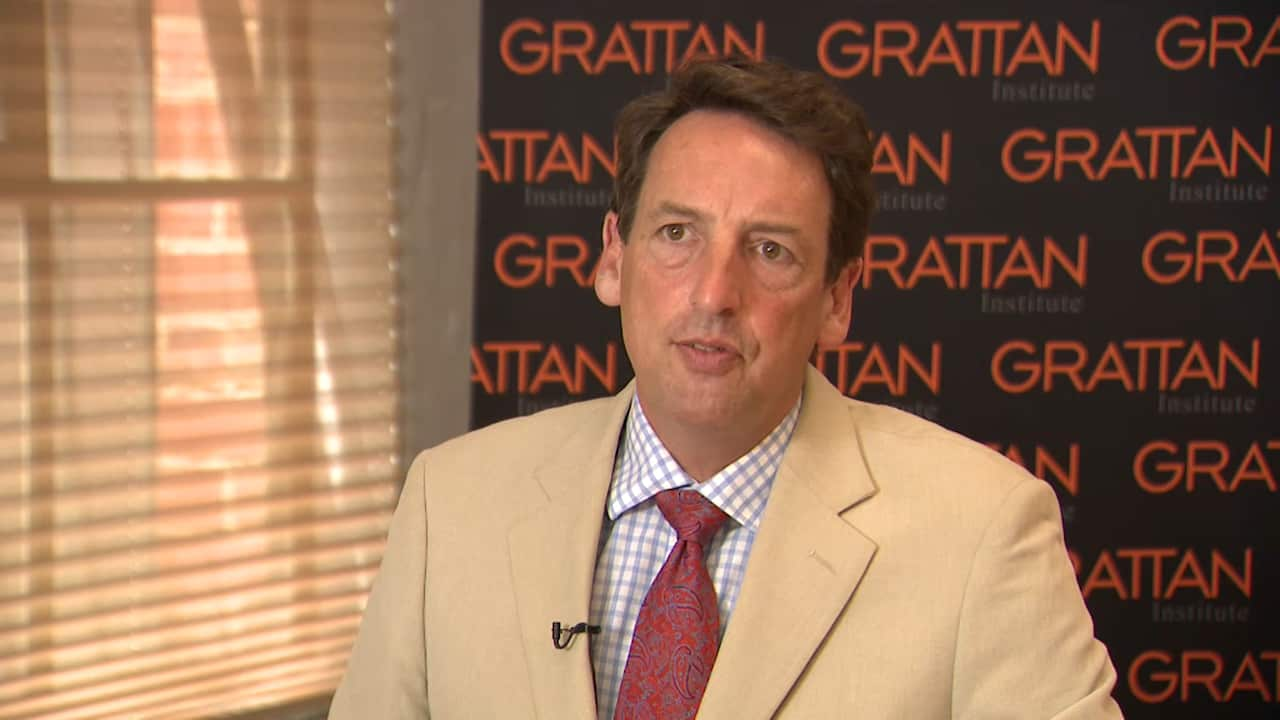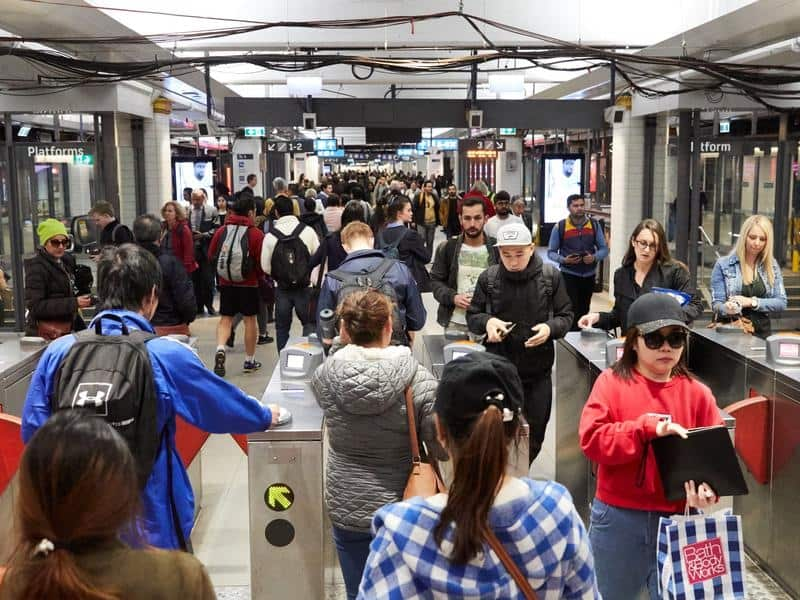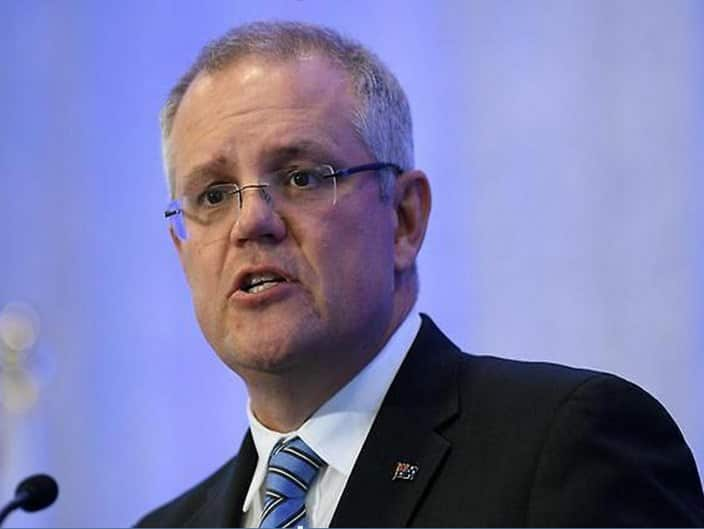The federal government faces a "difficult choice" between improving infrastructure or slowing migration after new data showed a dramatic drop in support for population growth, says Grattan Institute chief executive officer John Daley.
Mr Daley, who heads up the national policy research group, said the results of an Australian National University survey are due to an increasing concern about housing and congestion in Australia's major cities.

"Either they can ensure that planning policy allows enough housing to be built, ensure that our transport policies are getting enough additional infrastructure in place. That's option one. And that's probably the best option, although it's politically pretty difficult especially around housing," he said.
"Option two is they can look at constraining the number of skilled migrants or they can reduce the number of additional international students that are coming here every year."
The ANUPoll found that just three out of every 10 people believe the country needs more people - a 15 per cent decline in support for population growth since a similar question was asked nine years ago.
Mr Daley said the results are consistent with other recent studies which showed growing concern about migration, as Melbourne and Sydney struggle to keep up with population growth.
The survey asked 2000 adults were asked late last year whether they thought the country needed more people.

Lead researcher Nicholas Biddle said the main reasons cited by those who don't support population growth included concerns about traffic, congestion, housing affordability and employment.
He said people are not necessarily opposed to migration itself.
"What it is, is the view that the infrastructure investment, our training, our education system, increases in supply of housing has not kept up with population growth.”
Men more likely to support cuts in migration intake
The 15 per cent drop in support for a big Australia was largely attributable to falling levels among men from 53.4 per cent in 2010 dropping to 32.8 per cent in 2018.
Just over 38 per cent of women thought Australia needed more people in 2010, but in 2018 that figure had dropped to 28.2 per cent.
Younger people especially those aged 25-34 showed the greatest support for population growth while people aged 45-54 showed the lowest.
Mr Biddle said those who support population growth cite the economic benefits, the need for a skilled workforce and easing overpopulation overseas as the main reasons.
“I think what people want to to make sure is those gaps in the workforce are being filled but to make sure that is not being done at the expense of training of either the Australian-born population or of recent or previous cohorts of migrants.”
Support for regional push
The ANUPoll also asked respondents whether they supported policies that would require new migrants to live in regional towns or cities for a period of time.
Just over 70 per cent said they agree or strongly agreed with such policies, but this was lower for respondents who lived outside capital cities (66.1 per cent).
Despite the support for the policies, Mr Daley said there is a risk they could be used by governments to deflect migration concerns.
"Those kinds of programs, as the survey shows, are extremely popular but the catch is that there is no evidence that they work," he said.
Last year, Prime Minister Scott Morrison said he intended to cut Australia's permanent migration intake by about 30,000 people, citing public concern about congested cities.
"They are saying: enough, enough, enough," Mr Morrison told the 2018 Bradfield Oration in November.

The ANU study comes only a month after a 2018 Mapping Social Cohesion survey found four in five Australians still saw the benefits to immigration.
The survey, which canvassed the views of 1,500 randomly chosen Australians, also found 52 per cent of Australians consider the current intake of migrants either ‘about right’ or ‘too low’, challenging some recent media and political narratives about rising concern over immigration and its impact on Australian society.

